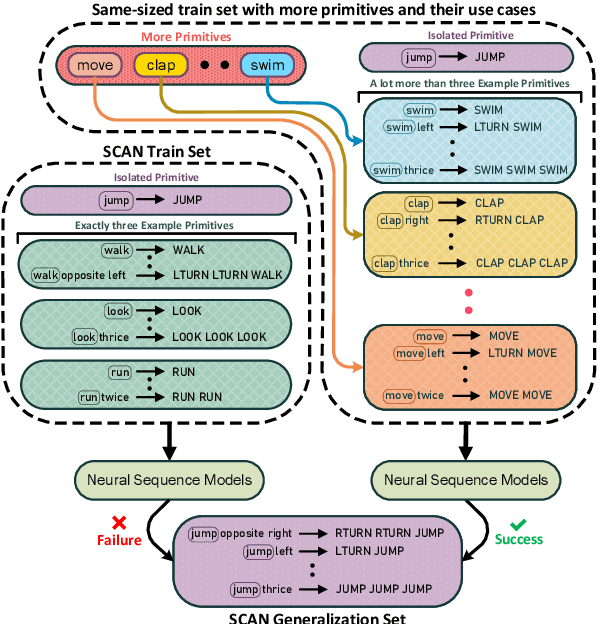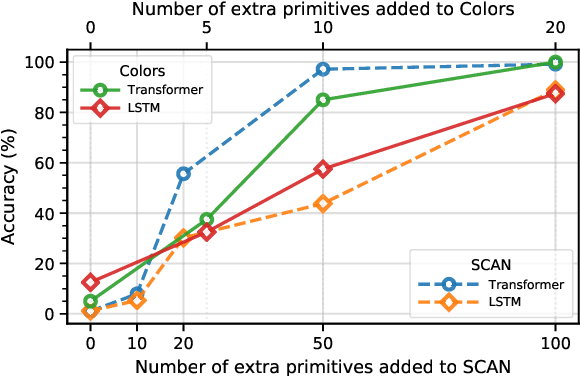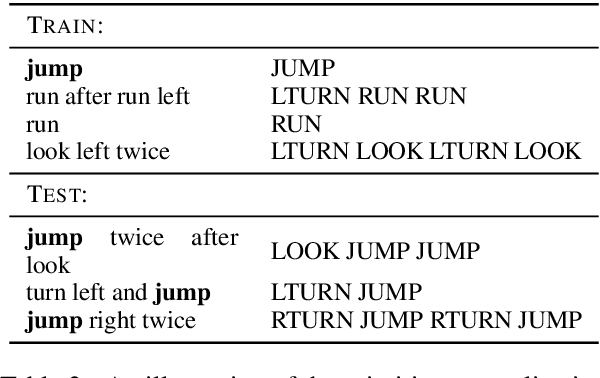Revisiting the Compositional Generalization Abilities of Neural Sequence Models
Paper and Code
Mar 14, 2022



Compositional generalization is a fundamental trait in humans, allowing us to effortlessly combine known phrases to form novel sentences. Recent works have claimed that standard seq-to-seq models severely lack the ability to compositionally generalize. In this paper, we focus on one-shot primitive generalization as introduced by the popular SCAN benchmark. We demonstrate that modifying the training distribution in simple and intuitive ways enables standard seq-to-seq models to achieve near-perfect generalization performance, thereby showing that their compositional generalization abilities were previously underestimated. We perform detailed empirical analysis of this phenomenon. Our results indicate that the generalization performance of models is highly sensitive to the characteristics of the training data which should be carefully considered while designing such benchmarks in future.
 Add to Chrome
Add to Chrome Add to Firefox
Add to Firefox Add to Edge
Add to Edge